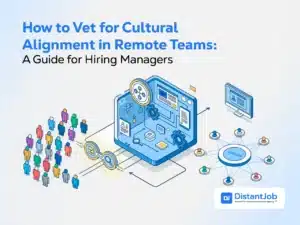Getting remote employees motivated is a manager’s priority. While everyone does their best for their teams, not every manager understands the important details of creating a motivational environment. The thing about motivation is, there’s hardly any middle ground. Its absence is unfortunate, but motivation killers are even worse. A lot of leaders seem to come out at the losing end of this equation. This is even truer with remote workers. There is a silver lining, though.
You don’t need to have the skills of a motivational speaker to be a decent leader. First, it’s important not to kill existing motivation. Once you realize what really drives your team, you can go further to build more of what drives them.
Before all of that, you need to know the warning signs of a demotivated environment in order to hit the reverse gear and bring your team back to life. Following a few simple steps and offering small employee benefits can substantially reduce the loss of motivation.
What Kills Motivation and What Should You Do as a Business Leader?
1. All Starts With Hiring
When it comes to remote employment, transparency is the name of the game. The fewer surprises, the better. It’s harder for remote employees to pre-assess a company from a distance.
They might feel deceived if you provide a job description that doesn’t really match the actual work they signed up for. In fact, putting out the wrong job description could lead to getting the wrong employees… A lose-lose situation.
According to a study from SelectSoftwareReviews, in 2024, 26% of job seekers rejected offers due to poor communication or unclear job expectations and 60% left the job due to unclear career paths.
What will follow is an unhappy environment because neither the new hire nor you will be happy. This may trickle down to the entire team and spiral out of proportion, creating gloom and doom. It might sound exaggerated but in reality, it can really be a big motivation killer for all.
Here’s how you do a good and clear job description:
- Avoid slang and buzzwords.
- Describe the nature of the tasks and the daily routines and practices of the role.
- Detail expectations and responsibilities.
- Ask for their Certifications and Skills needed.
You must know that almost no employee wants to do things they haven’t applied for. They may exist but do not look for these unicorns.
2. Avoid Repetitive Routines
Having a structure is fundamental for any business. When the plan turns into a dull routine though, motivation starts to fade. Remote employees might feel that everything is predetermined. They do a good job – so what? They do a bad job – so what? Remote employees can start taking their jobs for granted.
The same old routine with a process that changes little is a recipe for disaster. The work will always be done, but what will be the quality of that work? In addition to processes, the team also needs to have drive and ambition. After all, we’re humans, not machines.
Good work deserves recognition. Make remote employees’ contributions palpable. Show them their work drives the company forward. Nothing kills motivation more than making good ideas disappear along the corporate ladder.
Nobody likes to think they are merely pawns, and it happens often in remote employment. Make remote employees feel appreciated. Emphasize what actions and attitudes you value and look for in your workforce. Notice their contributions, good or bad, and handle the latter with caution.
A study from Lund University suggests that, while some employees prefer quality tasks over repetitive tasks, others may prefer the routine. By knowing the preferences of your employees, you may extract the best from them. For example: an employee who prefers variation may crave project management, but an employee who prefers a routine may be fit for process management or be qualified to oversee an operation to ensure its quality.
3. Stay Away From Negative Criticism
Discuss negatives in private, with a delicate approach. Starting off on a positive note sets a constructive tone. Don’t solely point the finger at your remote employee. Point towards where the problem occurred.
Offer feedback in the right way. This will help remote workers not take the matter personally and strive to improve. This way you can avoid one of the strongest motivation killers.
To make the overall feedback environment less overwhelming for the employees, as a leader, it is best to ask for feedback on your work too. This makes it easy for the team to feel more at ease as now it is seen as teamwork for improvement and not seen as a one-way road to finding flaws.
Studies suggest negative feedback occurs not only harm the workplace but even in marriages and other areas of the personal life. Criticism lasts longer than praise, so be sure yours builds and strengthens people instead of dismantling them.
Here is how to provide constructive feedback according to APA: give them specific feedback, talk about their actions without attacking them, listen to their feedback, provide a suitable solution and reach and agreement.
If it still feels confusing, here are some examples to make you figure out on how to act while giving them constructive feedback.
Choose the best way to give feedback in different remote work scenarios.
That’s a great approach! Asking for clarification instead of vague criticism improves collaboration.
This might be frustrating for your coworker. Be specific about what needs improvement.
Good approach! Focusing on a solution rather than blame helps build accountability.
This might make the employee feel defensive rather than improving the situation.
That’s a thoughtful response! Offering an alternative solution makes the feedback more constructive.
This dismisses the issue without resolving it, which can cause further tension.
4. Lack Of Growth Opportunities
This is monotony’s evil brother. Most remote employees want to grow. The ones who don’t are probably not very good. Nothing kills motivation more than perceiving a job as a dead end. Showing you can provide them with something more than paychecks turns you into something more than an employer.
This way you can form an emotional connection as well. The feeling that both parties are working towards something together induces motivation. Growth opportunities that can increase remote employees’ market value are great job perks. It might end up costing you some quality talent, but it will help develop much more in the long run.
A staggering number of 60% of employees leave their company because of unclear career growth. No one wants to give their best for the company for years straight just to see their employer hire someone else to be their boss.
Here are some ideas on how to plan growth opportunities for your company and your remote teams:
- Offer Mentorship Programs: Pair veteran employees with newbies to foster knowledge transfer and provide much-needed guidance.
- Promote Leadership Development: Equip your employees with the skills and knowledge they need to take on leadership roles.
- Encourage self-learning: The best employees are the ones who take their education seriously with their own hands; you can give them a hand by paying for a course and a book.
- Job rotation: To prepare your employees for a better role in your company, you may want to challenge them to take a new job, but still not a promotion. With that experience, you may test your employee’s skills to adapt to his new list of tasks and responsibilities, while they learn about a new unexplored facet of your company.
5. Closed Culture
Remote employees tend to look for a certain level of flexibility. You, as the boss, are the one who is going to determine its level. Shutting it down completely, though, isn’t the right strategy.
Suppressing remote employees is equal to blocking motivation. Remote employees need to adjust to your company culture and operational model. This doesn’t mean there can’t be some leeway for individuality. Allowing individuality will make them feel more valuable, rather than just another brick in the wall.
It’s best to let people be who they are as this broadens everyone’s perspective and leads to a lot of positives. You can expect a diverse range of creative ideas, more solutions to one problem, and a lot more fun! There’s no fun or advantage in making everyone follow one personality type at work.
Do not forget that building company culture is about building connection between you and your employees. Your employees have to adapt to your culture and you may consider to adapt yourself to them as well.
6. Decentralization Of Information
Remote employment can be very delicate when it comes to customer service. Some workers might have a lot of insight into a particular type of customer. Since they work remotely, though, they might isolate information, which can throw your whole operational model off balance.
New employees might not know how to handle accounts. You need to make sure all customer-relevant information is centralized and shared. You can create chats, discussion boards, and schedule regular conference calls. Customer demands need to be highlighted and coordinated among all remote employees.
Consistency is crucial to any operational model and especially customer service. This is even truer with sales. Lacking the chance to handle accounts causes a loss of motivation.
7. Not Knowing Who To Turn To
Remote employment often leads to feelings of isolation. Skype, conference calls, and video chats may ease loneliness to quite an extent. More importantly, though, you need to make clear who they can turn to for different issues.
Explain from the get-go which manager can help them resolve which type of situations. Keep checking on them from time to time if they are struggling with something. Some managers even provide technical assistance and financing for technical issues with equipment. This is just like an office that needs to ensure proper tools are provided to its workers. When remote employees feel they miss out on the perks of a regular job, their motivation starts to drop. Employee benefits directly influence their motivation.
Everything can be solved from start by a well-structured onboarding process, where you can show your new workers all their new colleagues and managers. If you add a list of names and stations, your new hire will know how to find proper guidance inside your company
8. Keep a Note of Their Holidays
Try to be as accommodating to holidays as possible. You can keep in mind the physical spaces your remote employees inhabit. Encourage them to let you know in advance of any upcoming holidays in their place of residence. Giving them such days off whenever possible will increase their overall morale. Not only, but it will also be a grand gesture, and ultimately – a motivation booster.
Motivating remote employees isn’t an exact science. Avoiding motivation killers can be much more straightforward. With some practice, it can turn into sparking motivation as well.
You may also decide to celebrate the holidays with your remote team as well. There are many fun activities for you to build trust and connection between all the members, like a virtual escape room, or organizing a R&R and Award Show. Just be sure your team is in the mood for it.
How to Provide Motivation for Your Team Like a Pro
As a leader, part of your job is spearheading your team’s overall performance and well-being while taking care to make sure both client and company needs are being met. A good manager focuses on the principal impact of their team. A great leader rallies around each team member. Human capital management company Ultimate Software released the results of a management survey they conducted, in which they found that 71% of managers said they knew how to motivate their teams. However, only 44% of employees polled agreed that their managers knew how to motivate them.
As a virtual leader, it can be difficult to know how to make an impact when your staff is scattered around the globe. But here’s how you can fix it:
1. Motivating Through Intercommunication
Neglecting employees, especially when working remotely, is one of the fastest ways to damage an employee’s motivation. It’s important to check in with each member at frequent intervals. Career coach and author Lisa Quast also cautions not to use these scheduled interactions just for getting your points across and hanging up. “To make these meetings as effective as possible, shift the discussion from you (the manager) telling the employee what to do, to the employee proactively providing you with an update on their work and explaining any help or support they might need.” If you want to motivate like a pro, begin your encounter with “What’s happening?” And be sure to mean it.
Employers who manage remote teams well would tell you that because of the lack of one-on-one communication, a lot can be lost in translation. Ferrazzi Greenlight CEO Keith Ferrazzi says, “As the manager, you need to set clear, deliberate expectations in advance and establish ground rules for how interactions will take place.” Make sure your direction is clear and concise.
According to this study from EY, 39% of the workers appreciated being checked in and they developed a sense of belonging at work, before receiving feedback (31%). Never underestimate the power of asking “how are you?”.
2. Motivating By Promoting And Utilizing
When employees’ talents are not utilized, motivation can be the first thing to deflate. Research professor and motivation author Brene Brown cautioned against ignoring employee talent. “Unused creativity is not benign. It metastasizes. It turns into grief, rage, judgment, sorrow, and shame.”
One major factor for motivation comes from the idea of good work being rewarded by recognition and promotions. Nearly 90% of millennials want professional development or career growth opportunities in their job, according to Gallup. And not having good career growth is the main reason why workers leave a company.
Businesscollective called Recognition the “key” to motivation. If a manager only contacts a remote employee to offer criticism, they are unwittingly causing major damage to the remote employee’s psyche, work ethic, and, of course, work drive.
Hubstaff proclaims that giving praise is an action that must be deliberate, stating, “Some managers only contact remote employees when something is wrong. This lack of positive communication crushes morale. You must be deliberate about offering positive feedback and praise.” Dustin Grosse, COO of Clearslide couldn’t agree more. “Rather than micromanaging when they’re getting the work done, focus on what they’re consistently achieving.”
3. Provide The Motivation by Leading with Example and Lasting Impact
Remote employees who are well-trained and well-managed can function on their own. Sheryl Sandberg, Facebook COO, spoke on this very subject. “Leadership is about making others better as a result of your presence and making sure that impact lasts in your absence.”
Motivating your employees remotely like a pro means you take communication seriously and use it to your advantage. Instead of neglecting your remote employees, you praise them honestly and consistently. Instead of micromanaging them, you provide them with clearly defined objectives and step back.
In the study done by Ultimate Software, half of the employees polled said they’d turn down a 10% pay increase to stay with a great boss. From our article Great Expectations – How to Get your Remote Team on the Same Page, it’s recommended for managers to “check in regularly, to answer any questions and see if any unexpected problems have cropped up.”
Furthermore, providing reachable promotion goals and offering praise as much as constructive criticism are sure ways to keep the motivation flowing throughout your remote team.
Conclusion
Now you have it—there’s no excuse for keeping your team unmotivated when you have the right tools and knowledge. Take action today: implement these strategies, foster a supportive environment, and watch as your team becomes more engaged, productive, and satisfied. Motivation is the key to success, and with consistent effort, your remote team can thrive.
But maybe you would like more advice, more suited to your specific needs.In that case, contact me, I would be glad to hear your needs and provide the best consultancy I can.





